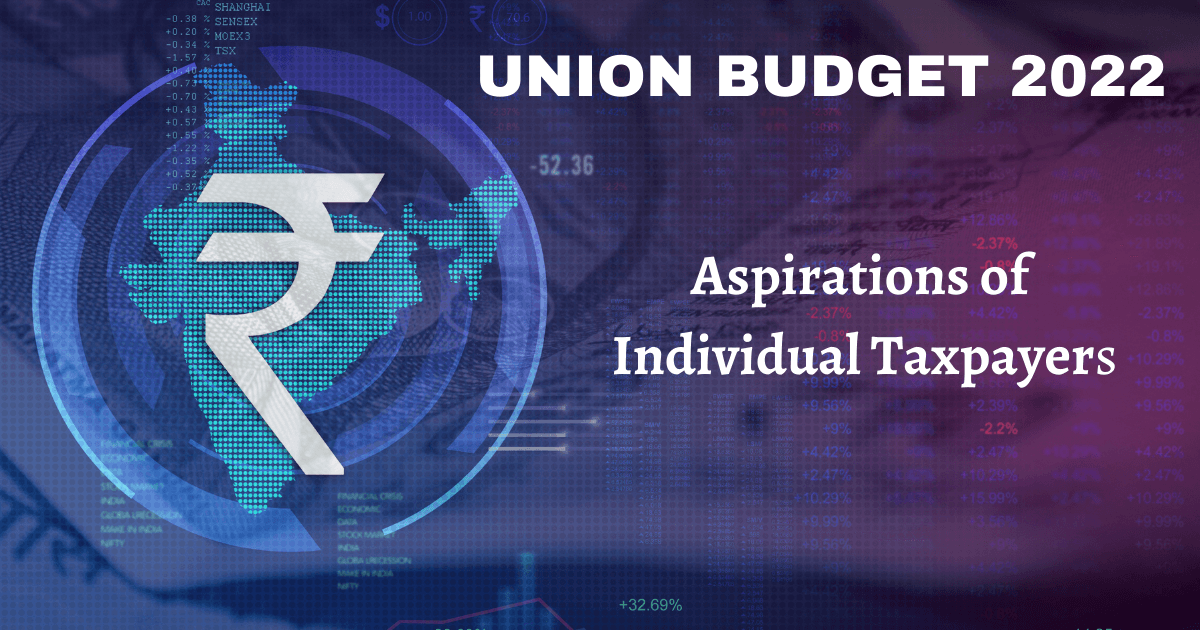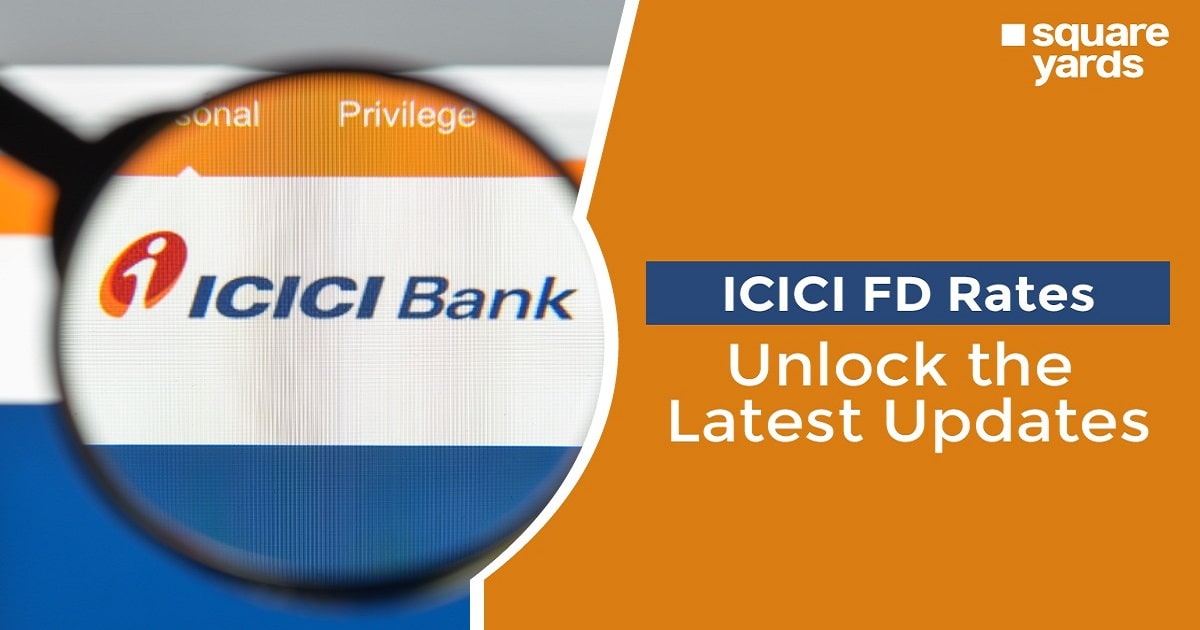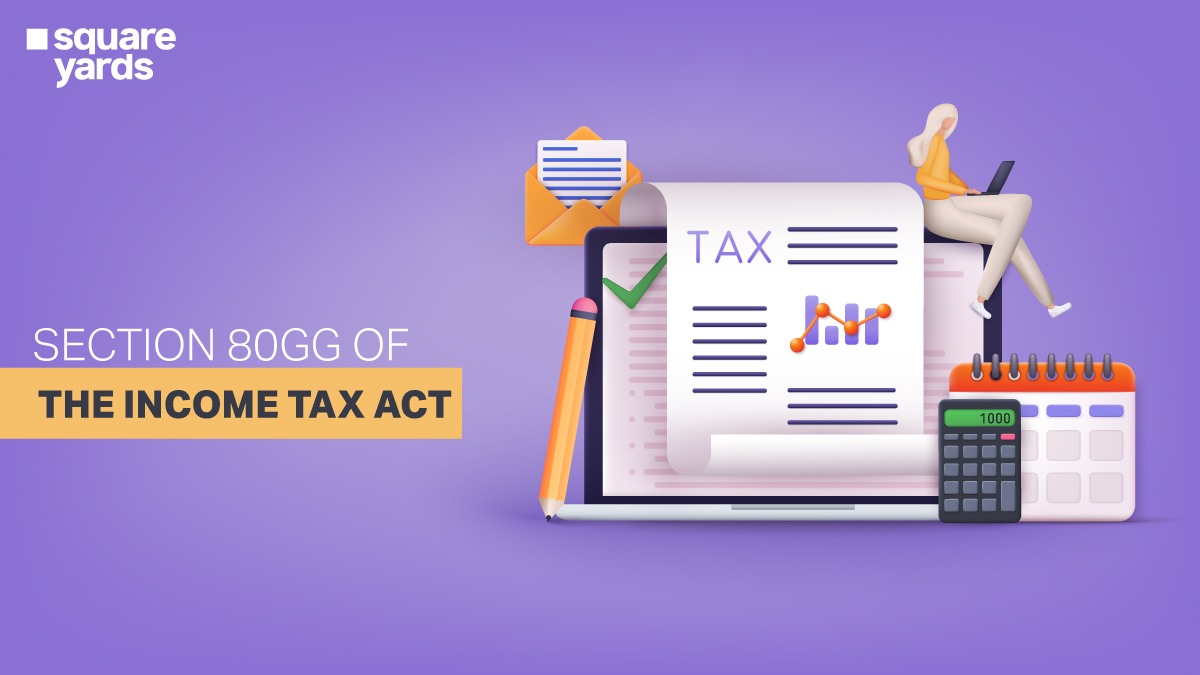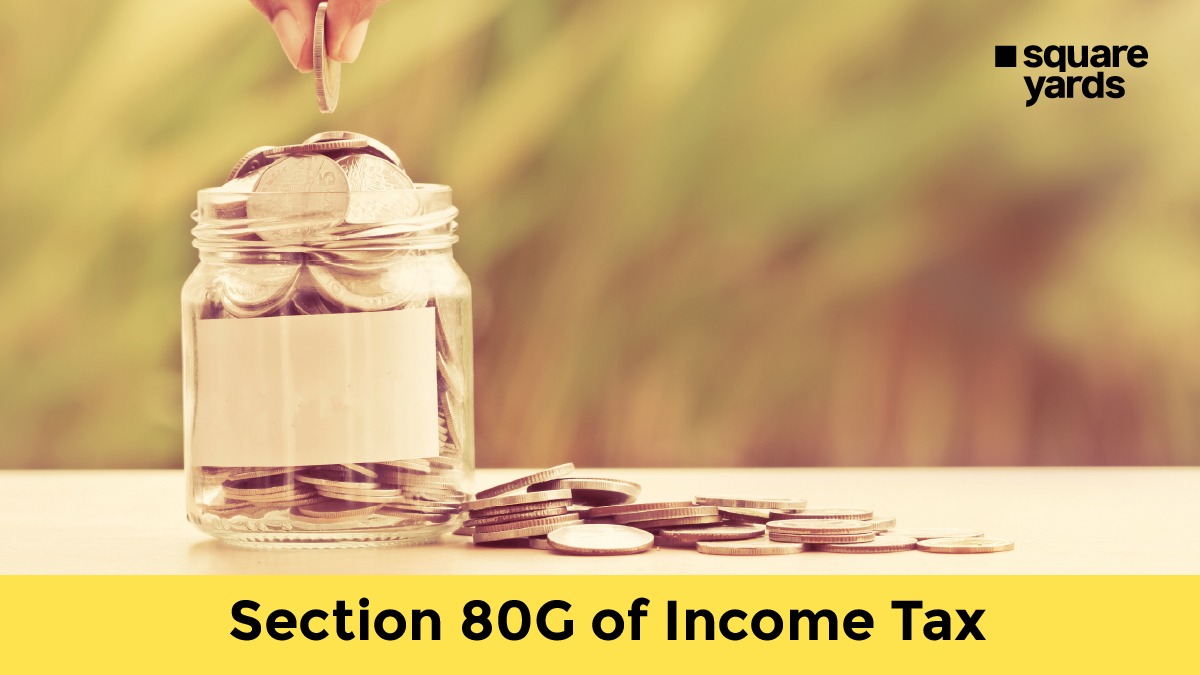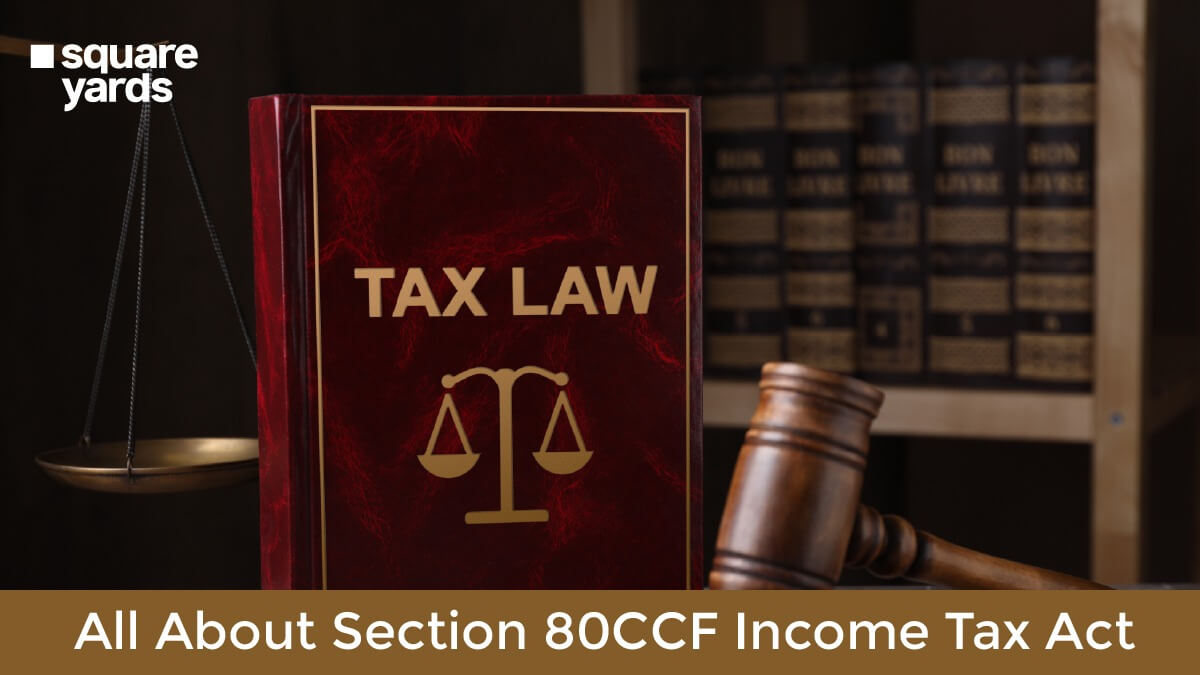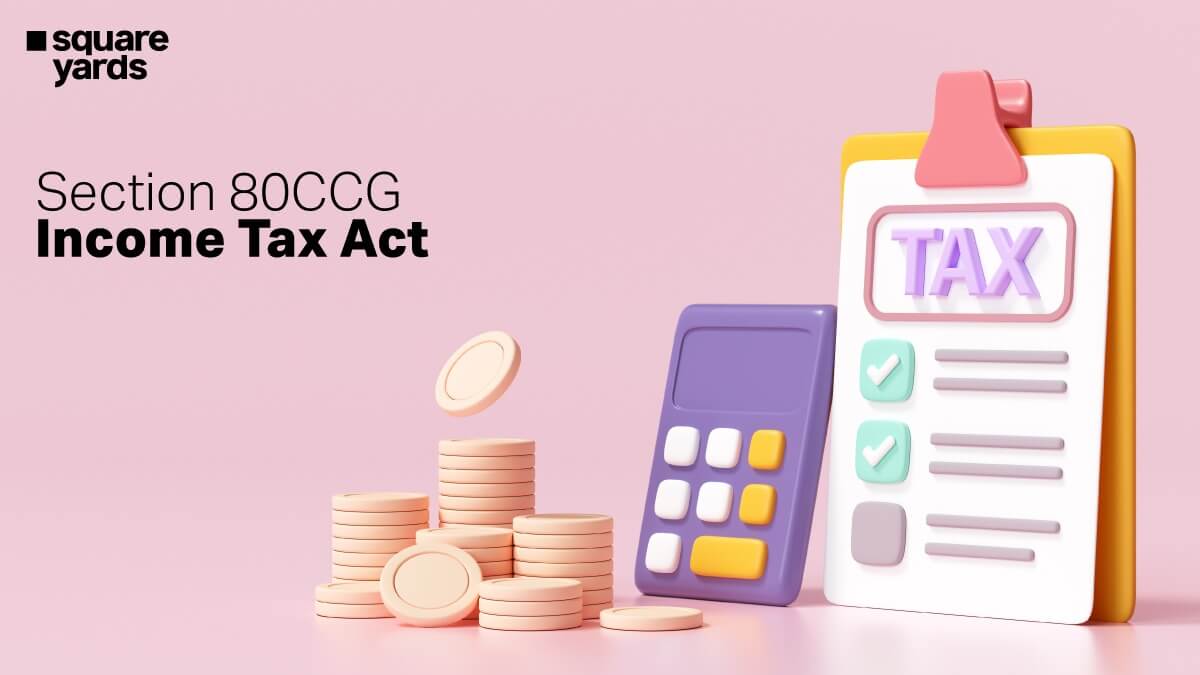The Union Budget is an integral part of the government that tells how the funds will be spent for the fiscal year (from 1st April to 31st March). On February 1, 2022, Finance Minister, Nirmala Sitharaman, is all set to present her fourth Union Budget. The Union Budget 2022 will be presented alongside tax proposals and financial statements for the fiscal year 2022-23. The Union Budget 2022-23 intends to create the perfect balance between the dipping GDP and the fiscal year’s discretionary spending.
The taxpayers pay the taxes every year and often are intrigued with how the Indian Government uses taxes for relief measures. Questions associated with exemptions or revisions also arise in the Union Budget presented by Finance Minister Nirmala Sitharaman. The individual taxpayers’ expectations from the Union Budget 2022-23 are expecting an increase in the current exemption limits and other standard deductions.
Table of contents
- Increase in Income Tax Exemption Limit
- Slab Rate Rationalisation
- Increase in Health Insurance Exemption
- Increase in Threshold Limits of Education, House Loan Interest, etc.
- Taxability on Cryptocurrency
- HRA Deduction under New Authority
- COVID-19 Patients and Family Exemptions
- Rise in Capital Gains Bond Threshold Limit under Sections 54EC and 54EE of the IRC
- Taxability on Dividend Received by Resident Investor
- Tax Relief on Work From Home
- Union Budget 2022-23 Latest Updates
- In Conclusion
- More From Budget 2022-23
Increase in Income Tax Exemption Limit
An increase in the Income Tax exemption limit is the foremost expectation from the Union Budget 2022. Currently, the basic tax exemption limit is ₹2.5 lakhs, which the individual taxpayers are expecting to get increased in the new budget.
In the financial year 2019, the rate of corporate tax for domestic companies was changed from 30% to 22%, whereas the branches of foreign companies in India need to pay a 40% corporate tax rate. This has increased the gap of corporate tax rates between domestic and foreign companies branches in India. Hence, the companies are also waiting and expecting the change in the corporate tax rate in the new budget for 2022.
Slab Rate Rationalisation
In the recent scenario, a 12-month holding period is inflicted for long term capital gains (LTCG) tax, whereas the mutual funds for debt need to be held for a minimum of 36 months to avail the LTCG benefits.
The uniformity in the LTCG time-holding period for the listed debt mutual funds and debt securities will help in efficient planning of the investments. It will also act as a revenue plug for the Indian Government. Hence, the Union Budget 2022 is expected to bring uniformity in the LTCG period. It is also expected to bring equal taxation for the capital gains for mutual funds investment along with Unit-linked insurance plans (Ulips). The Ulips Capital Gains is a tax-free accumulated year-end premium of up to ₹2.5 lakhs.
Increase in Health Insurance Exemption
Health insurance became a concerned topic since the pandemic has emerged. More people are opting for health insurance as it helps them to shoulder the financial expenses in medical emergencies.
Even though it is important to have health insurance, the taxpayers in India can not afford it. Insurance also has low penetration among the people.
According to Section 80D, the individual taxpayer (below the age of 60) are exempted from health insurance premiums of up to ₹25,000 for themselves, their spouse, and their children. If the parents of the taxpayer are senior citizens, an exemption of ₹50,000 can be availed for health insurance premiums.
In order to promote health insurance to and more people avail this facility, the bar of exemption should be raised, taking into consideration the higher medical expenses because of the pandemic. This will help in boosting the health insurance among the taxpayers.
Increase in Threshold Limits of Education, House Loan Interest, etc.
The current education cost is much higher than before, keeping in line with the education expenses, the exemption of ₹100 per child (can be availed up to two children) is too low. Hence, the individual taxpayers are expecting the exemption to be multiplied, taking into account the current education cost for the children.
Also, the deduction under section 80C of the Income Tax Act,1961, which was last modified in the Finance Act 2014, needs to be enhanced. Presently, the exemption of ₹2 lakhs can be availed by the taxpayers. Increasing the exemption bar for house loans will help the taxpayers and boost the real-estate industry too.
The interest burden on the individual taxpayers can be helped by revising and increasing the tax threshold limit from ₹10,000 in Union Budget 2022.
Taxability on Cryptocurrency
In the past years, India has had more than 10 crores of investors in cryptocurrency, making it the top in the terms of tally for the investors. However, no updates on the crypto taxes by the Government of India have been seen to date. Seeing a large number of investors in cryptocurrency, the Union Budget 2022 is expected to lay out the taxability rules. It is also expected to mention the way that the crypto will be treated, whether it will be a currency or an asset.
HRA Deduction under New Authority
Under section 13 (10A) of the Income Tax Act, 1961, the employees can get an exemption for the House Rent Allowance (HRA) by determining the taxpayer’s income under the head Salary. It is the allowance amount that is deducted from the CTC of the employees.
Most of the salaried individual taxpayers live under the rented roof, hence, they are eligible for HRA exemption. However, the alternative jurisdiction is not achievable as it does not provide an exemption for HRA. This exemption is crucial for the salaried employees who live in a rented place.
To make the new scheme feasible, it is expected that the Union Budget 2022 will allow HRA exemption to all the taxpayers who also wish to choose the new jurisdiction. HRA is a basic expenditure for every taxpayer, especially those who live in metropolitan areas where the cost of renting and living is high.
COVID-19 Patients and Family Exemptions
As the world is suffering from the effects of the pandemic, the government has offered several packages and reliefs to the citizens for fighting against the COVID-19 implications. Among the many reliefs, one was that if an individual receives COVID-19 treatment expenditures from their employers or any friend, they become eligible for income tax exemption under the Income Tax Act. In the Union Budget 2022, it is expected that the taxpayers who incurred the COVID-19 treatment expenses should also get some relief or become eligible for income tax exemption.
Rise in Capital Gains Bond Threshold Limit under Sections 54EC and 54EE of the IRC
Under section 54EC of the Internal Revenue Code (IRC), the maximum limit for the investment of an individual for the long-term asset from the arising capital gain accumulated from the capital asset transfer is ₹50 lakhs. Hence, because of the given economic condition, the threshold limit should be increased from the set bar.
Besides, Section 54EE mentioned bonds under the Finance Act, 2019, are also expected to be issued and notified in the Union Budget 2022.
Taxability on Dividend Received by Resident Investor
As per the Income Tax Act Section 52 (2)(i), the resident investors who fall under the category of higher taxes are liable for higher tax liability at 30%. While the non-resident investors are liable for a 20% reduction in the taxes under Income Tax Act Section 11 (1)(a)(i).
This makes it beneficial for the non-resident investors in comparison to the resident investors. Hence, in the Union Budget 2022, the individual resident investors are expecting a revised tax rate that would eliminate the discrimination between resident and foreign investors.
Tax Relief on Work From Home
The pandemic has forced companies to provide work from home to their employees. As a result, the Indian Government was earlier planning how to provide tax exemption benefits on work from home. The majority of the employees in India are working from home, which makes tax exemption important.
Work From Home tax exemption will contribute to society’s welfare. In many cases, the employers have also provided work from home expenses to the employees, making the amount taxable.
In the Union Budget 2022, the government might include the specifications about work from home tax exemptions under certain conditions incurred by the salaried employees.
Union Budget 2022-23 Latest Updates
Finance Minister Smt. @nsitharaman to address press conference post presentation of Union Budget 2022-23 in Parliament at 03.45 PM, NMC, on 1st Feb 2022
— Ministry of Finance (@FinMinIndia) February 1, 2022
Watch Live:
? https://t.co/8i7M4kzSRA
FB➡️https://t.co/GVfVncctpK
Follow for LIVE updates
Twitter➡️https://t.co/XaIRg3fn5f
As of Feb 1, 2022, below are the few updates and announcements made in the Union Budget 22-23 by the Indian Finance Minister Nirmala Sitharaman:
- A digital rupee will be launched by the Reserve Bank of India using the blockchain and other similar technologies.
- A digital asset gifted to an individual is liable for taxation under the Income Tax Act,1961.
- A surcharge of 15% will be liable on the equity gains for long-term capital gains.
- A new integrated platform will be introduced for the National Digital Health Ecosystem. In addition, this integrated platform is believed to be composed of the healthcare contributors and health facilities’ virtual registry. It will also provide the citizens with easy access to healthcare facilities.
- Two lakh Anganwadi will be upgraded for the child healthcare enhancements.
- Digital universities will be launched for the attention on the ICT. It will be done using the spoke and hub model.
- The eVIDYA will be expanded from 12 TV channels to 200 TV channels under the One Class, One TV channel initiative.
- The proposed increase in the tax deduction limit for state government workers to 14 per cent of the employer’s contribution to the National Pension Scheme.
- No changes are made in the personal income tax slabs in the Union Budget 2022-23.
- As per Budget 2022-23, the taxpayers can fill updated Income Tax Returns (ITRs) within 2 years from the applicable financial assessment year if there is an error in the previously filed ITR.
In Conclusion
The increase in tax exemption limits for health insurance, rationalisation of taxes, increase in education threshold limits, and many more are the need of every individual taxpayer. Earlier, there was no tax relief provided to the taxpayers, excluding the exemption of ITR submission by senior citizens. Therefore, the Union Budget 2022-23 is the right time to provide some relief to the individual taxpayers.


